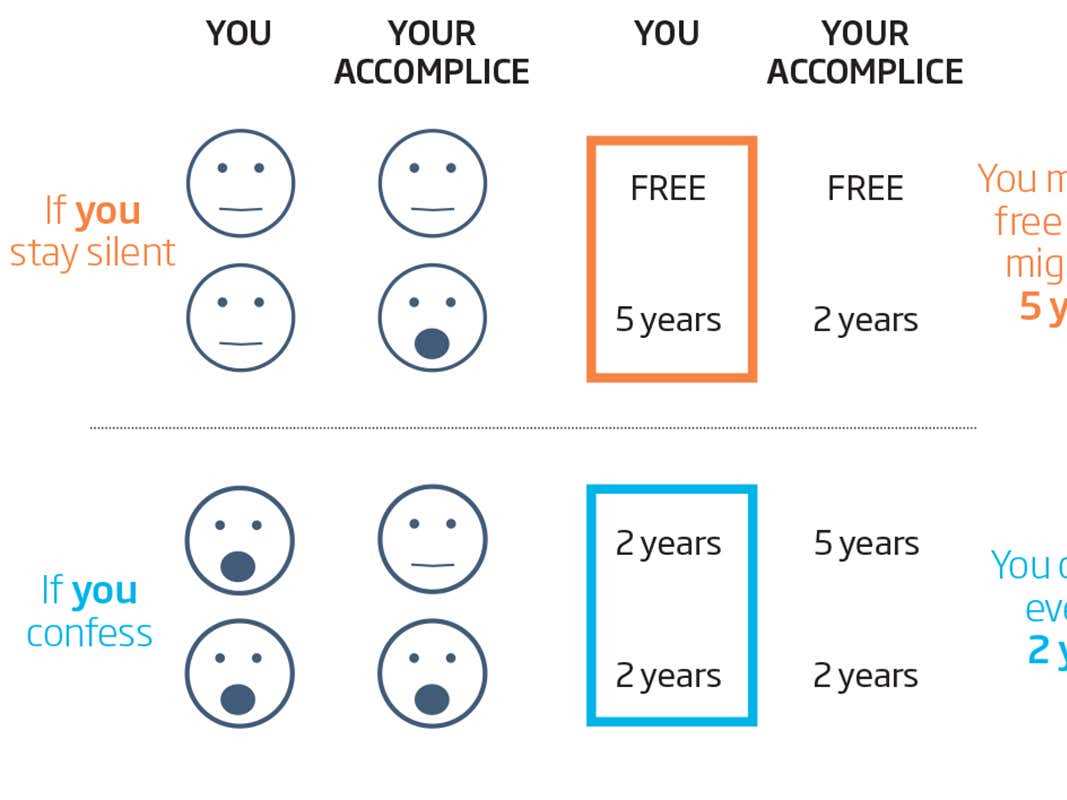Key Concepts in Game Theory

| Concept | Description |
|---|---|
| Players | In game theory, players are the individuals or entities that make decisions. They can be individuals, companies, or even countries. |
| Strategies | Strategies are the choices or actions that players can take in a game. Each player has a set of possible strategies to choose from. |
| Payoffs | Payoffs represent the outcomes or rewards that players receive based on the combination of strategies chosen by all players. They can be in the form of monetary rewards, utility, or any other measure of value. |
| Nash Equilibrium | Nash equilibrium is a concept in game theory that represents a stable state in which no player has an incentive to unilaterally change their strategy. It is a solution concept that predicts the outcome of a game. |
| Zero-Sum Games | A zero-sum game is a type of game in which the total payoff to all players is constant. In other words, the gains of one player are exactly balanced by the losses of the other players. |
| Cooperative Games | Cooperative games are games in which players can form coalitions and make binding agreements. The focus is on the analysis of how players can cooperate to achieve better outcomes. |
Applications of Game Theory

1. Economics
Game theory has significant applications in economics, particularly in the study of market behavior and competition. It helps economists analyze how individuals or firms make decisions in situations where their actions affect others. For example, game theory can be used to study pricing strategies, bargaining situations, and the formation of cartels.
2. Political Science
3. Biology and Evolutionary Theory
4. Computer Science
Game theory plays a crucial role in computer science, especially in the field of artificial intelligence and algorithm design. It helps in developing strategies for automated decision-making and optimizing outcomes in complex systems. Game theory is used in designing algorithms for auctions, routing protocols, and multi-agent systems.
5. Social Sciences
Future Trends in Game Theory
| Trend | Description |
|---|---|
| Machine Learning and Artificial Intelligence | Game theory is expected to benefit from the integration of machine learning and artificial intelligence techniques. These technologies can enhance the ability to analyze complex games with large amounts of data, leading to more accurate predictions and strategic insights. |
| Behavioral Game Theory | While traditional game theory assumes rational decision-making, behavioral game theory incorporates psychological and social factors into the analysis. This field is expected to grow as researchers continue to explore how human behavior affects strategic interactions. |
| Network Game Theory | |
| Evolutionary Game Theory | Evolutionary game theory studies the evolution of strategies in populations over time. It provides insights into how different strategies can emerge and survive in competitive environments. This field is expected to continue growing as researchers apply it to various domains, such as biology and sociology. |
| Algorithmic Game Theory | Algorithmic game theory focuses on the design and analysis of algorithms for strategic decision-making. It combines concepts from computer science and game theory to address computational challenges in strategic settings. This field is expected to play a crucial role in designing efficient and fair mechanisms for resource allocation. |

Emily Bibb simplifies finance through bestselling books and articles, bridging complex concepts for everyday understanding. Engaging audiences via social media, she shares insights for financial success. Active in seminars and philanthropy, Bibb aims to create a more financially informed society, driven by her passion for empowering others.
